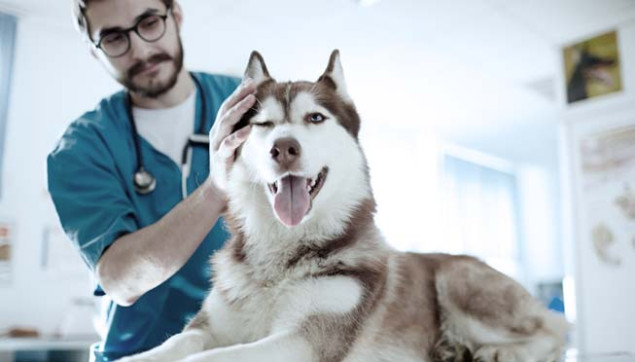Pet treatments: which are the most expensive for your dog or cat?

Last updated on 5th January, 2024 at 01:55 pm
We know that as a pet owner, keeping your pet safe and healthy is a priority. But accidents happen, and to make things worse, pet health problems can be expensive to treat. Read on for the most common pet health problems that could surprise you with a hefty vet bill.
The most expensive accidents
#1: Swallowing a foreign object
“Animals tend to eat things they shouldn’t,” says Dr Travis Gray, a veterinarian at the Cape Animal Medical Centre. “When they do swallow foreign objects, such as a child’s toy, clothing, or a stick, it can cause damage to the gastrointestinal tract, cause vomiting, diarrhoea and abdominal pain, and may require surgery to remove the obstruction, which can be expensive, says Dr Gray. “An accident such as a foreign object removal can cost as much as R25 000,” shares Robyn Lee Kotze of Petsure, a division of Hollard Insurance*. Besides the actual surgery, X-rays to diagnose what and where the foreign object is and whether it is causing a blockage will also need to be done, and this could cost between R6 000 and R10 000, says Dr David Miller, a veterinarian at the Johannesburg Specialist Veterinary Centre. How to avoid it? Pick up clothing and toys, dispose of waste promptly, and don’t feed your pet human food.
#2: Ligament knee damage (cranial cruciate ligament ruptures)
“Younger animals tend to be more active and adventurous, which makes them prone to accidents,” says Dr Gray. A tear or rupture in the knee may be due to ageing of the ligament, obesity or poor physical condition, according to the American College of Veterinary Surgeons, but it can also occur when a pet changes direction suddenly while running or during extreme physical exertion, and it can be expensive to diagnose and treat. “This seems to be particularly true for unsterilised cats who tend to wander more than their sterilised peers. Cranial cruciate ligament rupture operations can range from R18 000 to R35 000,” says Dr Miller.
#3: Intervertebral disc disease (IVDD)
IVDD is the most common spinal disease in dogs and is also seen occasionally in cats, according to the American College of Veterinary Internal Medicine. It occurs most frequently in the dwarf (chondrodystrophic) breeds such as the dachshund, Pekinese, Shih Tzu, basset hound or American cocker spaniel; however, a rupture of a healthy disc can also be caused by trauma, such as a road accident or a fall from a height. It may cause your pet to experience pain, a partial loss of limb function, paralysis, and sometimes a loss of feeling in the hind limbs. Depending on the severity of the problem, your veterinarian may recommend steroids, anti-inflammatory medications or emergency surgery. “A standard spinal or slipped disc surgery can range from R20 000 to R35 000,” says Dr Miller.
The most expensive illnesses
#1: parvovirus
“This can be really nasty, and really expensive if a long hospital stay is needed,” says Dr Gray. According to the South African Veterinary Council, parvovirus is a highly contagious virus that causes an infectious gastrointestinal illness in puppies and young dogs, and without treatment, it is potentially deadly. “Until recently, we have treated all acute diarrhoea cases alike, by not feeding the pet until the vomiting and diarrhoea has stopped and then beginning with small amounts of low-fat foods if the dog will eat voluntarily. However, with parvovirus, that would mean that puppies would go 3-10 days without food. Over the years, advances have occurred in the fields of pain control, fluid administration, antibiotic therapy, and basic care of these patients, and if they don’t eat on their own, we should tube-feed them, Dr Miller continues, but these can all add up.
#2: Cancer and organ failure
“Older animals tend to get the same dread diseases that we as humans do, such as cancers, heart disease and osteoarthritis. Depending on how far you are willing to push the treatment, the more expensive these treatments can become,” says Dr Gray. “CHOP (cyclophosphamide, hydroxydaunorubicin [doxorubicin], Oncovin® [a trade name of vincristine], and prednisone) protocol chemotherapy – used to treat dog lymphoma – administered over a six-month period can cost anything between R30 000 and R50 000, depending on the dog’s size. Chemotherapy for bladder cancer and bone cancer can range between R3 500 and R4 000 every three weeks,” says Dr Miller. As house cats get older, they are also more likely to develop problems such as kidney disease, diabetes, hyperthyroidism and more.
Protecting your pets
How to ensure your pet stays safe? “Regular vet visits,” says Dr Miller. “Especially to check your pet’s teeth and gums and to monitor their body condition. So many diseases are triggered or worsened by obesity.” Dr Gray adds, “Keeping your pet’s preventative care (such as vaccinations and deworming) up to date is an important start. In cats, sterilisation does reduce roaming behaviour and the likelihood of being injured. Pet insurance is also always advised,” says Dr Gray. “Even having some basic cover can really help relieve some of the stress when arriving at the emergency vet.”
We know that we can’t always be aware of what our pets are doing. Have peace of mind knowing that your dog or cat is protected from accidental injuries or illnesses!
*The Hollard Insurance Company Limited (Reg. No. 1952/003004/06), a Licensed Non-Life Insurer and an authorised Financial Services Provider.
Want to learn more?
We send out regular emails packed with useful advice, ideas and tips on everything from saving and investing to budgeting and tax. If you're a Sanlam Reality member and not receiving these emails, update your contact details now.
Update Now







